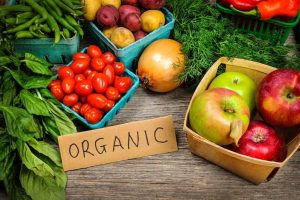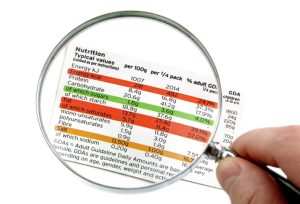With the demand for healthier food options, organic farming has become an increasingly popular agricultural method of food production. While many consider the term “organic” to be a misleading sales tactic, others strongly support its benefits. The truth is probably somewhere in the middle. Yet, it’s beneficial to investigate the qualities of each type to understand the differences better. One aspect of organic food is certainly beneficial, and this is the absence of pesticide use with organic food and produce production.

In what follows, we’ll be comparatively analyzing the differences between the terms “organic” and “natural,” defining each and their distinct characteristics. We’ll also explore the benefits of organic food production and consumption from a health and environmental perspective.
Organic vs. Natural Vegetables
Often confused to be one and the same, the terms “organic” and “natural” actually have several major differences.
According to the USDA, organic agriculture is “an ecological production management system that promotes and enhances biodiversity, biological cycles, and soil biological activity.”
Though both imply that production takes place without the use of manufactured pesticides, preservatives, antibiotics, steroids, and other synthetic fertilizers, organic food production involves a much stricter set of production requirements. These requirements are monitored by the U.S. Department of Agriculture.
From soil quality and water quantity to how the animals are treated throughout the production cycle, organic foods are under much more scrutiny to ensure optimal health, cleanliness, and ethical practice. Foods that are labeled ‘natural’ do not require such standards of production, yet they mostly contain fewer additives and preservatives than conventional food products.
Finally, organic farms often differ significantly from other farms in that they’re typically smaller farms that operate more ethically and follow a more environmentally-friendly approach to production.
Organic foods often tend to taste differently and have a different appearance. They are also more costly and intend to impact human health and the environment positively.
The differences between natural and organic in the description of various foods and production can become blurred, yet it’s important to understand some distinct differences that shouldn’t be ignored.
The Potential Benefits of Organic Vegetables
While more research is required to validate organic food claims scientifically, the data thus far has correlated with improved health markers over conventional foods. Though organic foods are more costly, they certainly have many clear benefits that some feel justify the costs.
The following are the most commonly reported potential benefits of organic foods.
Nutritional Profile

Due to the way organic foods are produced, they often contain a richer nutritional profile than conventional foods, comprising greater amounts of vitamins, minerals, omega-3 fatty acids, and antioxidants. The additional amounts of omega-3 fatty acids are helpful in preventing heart disease and stroke, whereas antioxidants are helpful in maintaining brain health.
Safety
Organic foods tend to be safer for consumption due to the lack of pesticides and other potentially harmful chemicals otherwise used in conventional food production. Thus, they present a much smaller risk for contamination and toxic residue.
Other Health Benefits
Although there is a lack of conclusive evidence supporting other tangible health benefits, some promising data suggests that organic food consumption may aid in weight loss, immunity, allergy risk, and even cancer risk.
Organic Food Consumption Tips
It may be that individuals who purchase organic or natural foods might disregard the risks of food contamination and potential toxicity. Thus, it’s important to understand the universal risks with any food and remain vigilant with food safety prior to consumption. The following are some guidelines.
Read All Labels Regardless
Even when foods are labeled organic, for example, it’s important to understand that there are several types of “organic,” ranging from 100% organic to as low as only 70% organic. In addition, it’s important to understand that organic doesn’t necessarily mean healthier.
Consume a Variety of In-Season Produce
Not only is it important to eat a variety of produce to consume a diverse range of nutrients, but it’s just as important to choose in-season produce to ensure the freshest fruits and vegetables are being ingested. This is especially true with organic produce.
Wash Fruits and Vegetables Thoroughly

To remove the potential of residual dirt, bacteria, or traces of chemicals, it’s important to wash the entirety of the surface of fruits and vegetables with both water and, in some cases, even soap or detergent. Because the skin or outer layer of both fruits and vegetables often contain much of the nutrient profile, washing is typically superior to pealing.
Final Thoughts
Because the research is yet to be conclusive concerning the superiority of organic produce vs. natural or conventional produce, organic or natural food consumption remains a personal decision.
Following the latest research will be the best way to learn more about organic benefits. Opting for organic produce, however, may reduce the risk of chemical exposure, and the product often has greater nutritional diversity than other foods.
